|
Briana Morgan is a YA fantasy and horror writer, playwright, coach, and freelance editor. Her works include Blood and Water and Reflections, A Writer's Guide to Slaying Social, and Touch: A One Act Play. 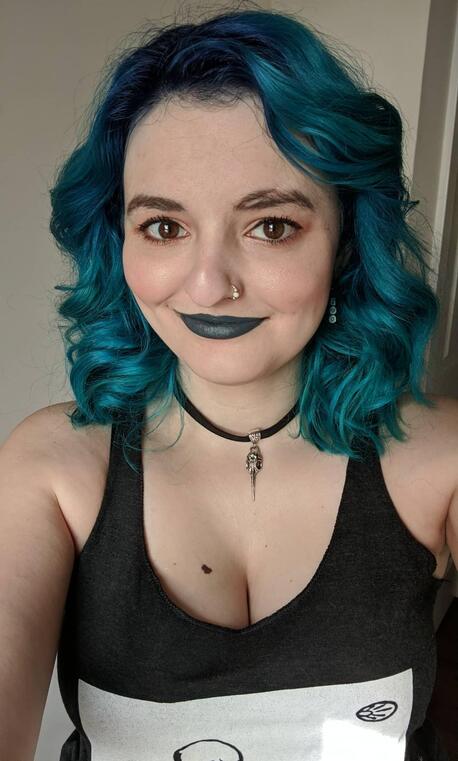 As a lover of writing, what do you enjoy most about the process? What I enjoy most about the writing process is that no two days are ever the same, and neither are two books. Each presents a unique set of challenges to overcome and rewards to reap. Each is satisfying in a new way. As a novelist and playwright is your approach different when writing one or the other? What appeals to you about each form? Each format has its advantages and disadvantages. Certain stories work better as novels full of internal musings and rich description. Others make more sense acted out and left to the whims of a director, producer, actors, and stage manager. I love the depth of worldbuilding that writing a novel allows. To a certain extent, you can also achieve that with a play, but it isn’t quite the same. With plays, the appeal for me mostly lies in stripping a story down to its purest elements (dialogue, characters, emotional beats, etc.). You've written several books, articles, a play on top of being active on YouTube and Instagram—how do you keep up momentum? I also have a day job! Trust me, it’s challenging to keep track of all that. I won’t pretend it isn’t. But luckily, I’ve always been an extensive planner obsessed with making lists. A little forethought and organization helps me fit everything into my life. I schedule content in advance so I spend less time stressing and more time engaging. In an interview with A New Look on Books, you mention that you love writing badass heroines—what's on your checklist for creating strong female characters? It’s hard for me to answer this one because every female character is stronger in a different way. After all, there is no “right” way to be a woman in the world. With that said, I always recommend subverting tropes as much as possible, and focus on making the character human, rather than simply focusing on their femininity. As a plotter, what are your outlines like? Do you find yourself revising or do you stick faithfully to the initial outline? It’s taken me a long time to develop my plotting process, and I’m constantly tweaking my outlines. My structure is loosely based on Blake Snyder’s Save the Cat. I make sure to hit all the big beats and then fill in the gaps, focusing on cause and effect. I’m still learning about outlining and what works best for me though, so I imagine my process will keep evolving along with my knowledge and experience. Rose Therman advises writers, “In the planning state of a book, don't plan the ending. It has to be earned by all that will go before it.” As a panster turned plotter, what are your thoughts on her advice? There’s something to be said about knowing where a story will go while still remaining open to change. Before I write a draft, I have some idea of the ending, a point of reference to work toward. Often this ending changes as I get to know and understand my characters better, and that’s okay. I’m always in favor of a more organic, flexible outline and an ending that does your story and characters justice. With your experience with Blood and Water, do you have any advice for fellow writers on self-publishing? My biggest advice for self-publishing is not to publish until you’re ready. I felt a weird self-imposed pressure while working on my first book, which led to me releasing it much earlier than was probably wise. This also led me to rerelease the book a few years later. I think if I had given myself a little more time, been a little more patient, I wouldn’t have felt the need to do it. That said, I have never regretted my decision to add content and rerelease the book. The new edition is so much stronger than the original work, and closer to my initial vision for the novel. I've heard that in the era of social media the author has to balance being a creator with being a public figure. What are your thoughts?
I agree. I’ve seen authors destroy or seriously maim their careers with poorly worded social media posts, and I advise everyone to remember that what you post on social media will be seen by more people than you can imagine, and people will take you to task for problematic opinions. I don’t say that to discourage people from using social media, but I think it’s important to keep it in mind so you don’t harm your chances of selling books, getting an agent, or anything like that. How would you describe your coaching style? I coach how I like to be coached. I focus on nurturing not only a writer’s current project, but also their future career. I love helping my clients brainstorm goals and strategizing ways to help them achieve their goals. Is there anything else you would like readers to know? I’m also a fiction editor specializing in working with independent authors! For more information about my editing services, visit my website, and send me a message if you have any questions. I also have a YouTube channel where I post new videos about writing, editing, publishing, and social media for authors every Friday. When not writing, you can find me engaging with friends and fans on Instagram and Twitter. Photo Credit: Briana Morgan
0 Comments
Matthew David Evans is the author of dark fantasy/horror novel Massacre at Sundown and has some really cool projects on the way. Huge thanks to Matthew for this interview! To see more of what he's about check out his site!
According to your Facebook you've got quite a few projects in progress in the works. How's it all been going? They are going well, for the most part. I’m finishing up a book now, and when that’s done, I’ll just slide my secondary project into the primary writing timeslot. It’s a lot of work, but it’s a lot of fun. You've been working with a friend on Christmas-themed horror novel Grim Tidings, set to be released in Halloween 2019. What has this experience been like? What do you look for in a collaborative partner? It’s been a strange experience. I would never have written a novel like this on my own. What happened was my friend created a makeshift Halloween costume one year where he looked like a demented Christmas clown. He sent me a picture and suggested a short story about it. I shrugged it off at first, because I had my own projects to work on, but when we got to talking about the character and how my friend saw him in his mind, I started to think that it could be something. We met at our local Applebee’s to hammer out some story details. He wrote some stuff down on a paper, then we ended up getting together to create an outline. When it was all said and done, we had the bones for a full novel. Like I said, I probably wouldn’t write something like this on my own. I tend to go more for the supernatural stories. There isn’t really any of that in Grim Tidings. It’s all about an aging killer recollecting his past. We see it from his perspective. It’s a strange combination. It’s my friend’s character, but it’s our story. I have truly enjoyed the experience. There isn’t any one thing that I look for in a collaborative partner. Grim Tidings worked out because the idea was enough to grab me. My project list has grown since then, and I have a lot of other stories planned out, so I’m not sure when or if I’ll collaborate with someone again. Massacre at Sundown does something really cool with POV I haven't really seen before--you alternate between third person present and first person past. What led you to this style choice? A whim. I wish I could say there was some sort of “aha!” moment, but there wasn’t. I just remember wondering what it would be like as I was writing the first draft. I gave it a try and liked it. I try to find ways to be creative in the telling of a story. I’m working on the sequel now, and it’s structured differently because it takes place after the present of the first novel. I think I’ve found some cool ways to tell the story that are different but will make it feel like a logical continuation of Massacre at Sundown. I've once heard that good horror/dark fantasy means a good setting. Is this valid advice to you? What elements (and in what doses) make up good horror/dark fantasy to you? I would say that’s valid. Setting can make or break a story. Sometimes you can take a familiar story or monster and place them in a different setting, and then you have a great book. I think Salem’s Lot is a great example of this. Dracula is world famous. Everyone knows the story. Everyone knows what vampires are and how to fight them. Stephen King didn’t really change any of that. What he did was drop a vampire right in the middle of a New England town. It worked because it was a great setting for the story. The same can be said for dark fantasy and even normal fantasy. I think people are tired of chosen ones and dark lords. If those tropes can be turned on their heads, it can become a fascinating read. Brandon Sanderson’s Mistborn is a good example of that. It’s a fantasy book set a thousand years after the Dark Lord won. I read that on the cover, and immediately, I bought the book. I believe that setting is key because it entices someone to read something a bit different but still in the comfort zone of the genre they like. When I wrote Massacre at Sundown, I knew I wanted the protagonist to live through the eighteenth and nineteenth centuries. I could’ve done this in a conventional way and placed him in Victorian England like so many gothic horror novels. He might have fit in well there. I decided to go for a more western angle because I thought it would be not only interesting to write but also interesting to read. In regards to what makes a good horror or dark fantasy to me? I’d say characters. Characters and story. I don’t like clichés if they’re overdone. I don’t want to read about the priest exorcising a demon. I want to read about the guardian angel duking it out with the demon while the family has no idea what’s happening. I don’t want to read about the old abandoned mansion that’s haunted. I want to read about the factory haunted my the guy who died on the forklift. I don’t want to feel that the characters have plot armor. I want to be afraid to turn the page. I want the book to stay with me after I’ve read it. What do you think draws people to the horror genre? Why do we, as readers, like to be scared? I think it’s the thrill of being scared more than anything. We read something chilling in a book or watch it on a movie screen, yet we realize it can’t hurt us. We live vicariously through the characters in the books we read, but we’re not really running from Pennywise. We’re not really being ripped apart by Pinhead. We’re not really eating human flesh at Hannibal Lecter’s dinner table. Are there any horror/dark fantasy tropes you love to hate? Hate that you love? I hate it when the main character turns out to be insane, and the whole story has happened in his head. I’ve read a couple books where I was okay with this, but then it got annoying. I also hate the bad guy who’s bad just because he’s bad. Mustache twirling villains are the opposite of interesting to me. In your opinion, immortality: blessing or curse? If I were immortal, I could keep writing books until the sun burned out of the sky. Also, I’d get to see every single Marvel movie and not miss any on account of being dead. Sounds great. But in all seriousness, I think it would be a curse. Watching everyone you love die while you stay the same would be hell. I tried to convey that in Massacre at Sundown. The irony of a suicidal immortal. He wants to die. He tries to die. Alas, he can’t die. Is there anything else you'd like readers to know? I appreciate all who have read my work, and to those who haven’t, I invite you to consider it. I promise, if nothing else, to do my best to entertain you. I thank all of you for reading this interview. Massacre at Sundown is available now. Keep an eye out for Grim Tidings later this year. Buy his work here. Follow Matthew David Evans on Facebook, Twitter, and Instagram. Susan Kimmel Wright is a lover of writing, composing articles, devotionals, and novels with more projects on the way. To hear more about what she's about, read on:
Are you working on any current projects? Yes. I'm currently finishing an adult cozy mystery, Mabel Goes To The Dogs, book two in a projected series, Volunteer of the Year. The first book is now with my agent. In book one, Mabel Gets The Ax, Mabel is facing her 50th birthday, having been abruptly fired from her longtime job as a low-level associate attorney. She decides to reinvent herself by volunteering for a variety of nonprofits and writing about her experiences. Unfortunately, her first volunteer gig with the local historical society lands her in a notorious ax murder house, just as history begins to repeat itself. You've written novels, short stories (*note: I don't write short stories, but do write personal experience), devotionals, and essays, all while maintaining a blog. How do you keep your momentum? Momentum--for me--ebbs and flows, but I try never to get too off track for more than a few days. In honesty, the blog has been hardest for me to maintain, and it's gone through more than one iteration. I've taken an extended break and plan to return to it in an entirely different format, which I think will fit my personality and work schedule much better. As for the rest of it, the work tends to create its own momentum. A novel wants to be finished; problems want to be resolved. External pressure helps, too--agents and editors are waiting. In recent years, most of my writing has been given to novels, and stories for Chicken Soup for the Soul books, which are subject to deadlines. When working in different forms, are there any key differences you come across in your process? Length is a big difference. A devotional, essay, or personal experience leaves little room for development, so tight focus is critical. I need to find that before I begin. Interestingly, I find everything I write--including nonfiction--benefits from strong fiction techniques: sharp sensory details, dialog, story arc, and characterization. How do you go about incorporating messages in your writing? I don't! I tried to do that when I was younger, but I've learned the hard way that theme is best left to grow organically out of placing my characters in challenging situations. In one of your blog posts, you mention you're immediately attracted to or put off by certain settings. As setting is priority for you, how do you go about assembling your settings? This is a good question, and in reality, settings seem to find me. In the same way another writer might start with a character or situation, and the synapses start firing, I find setting serves that function for me. It's truly a case where that setting simply occurs to me, maybe because I read an article or someone mentions a place. The moment it drops down over my story, everything starts coming to life. Three examples: (1) The ax murder house in Mabel Gets The Ax. (2) My middle-grade WIP, Ghosts of Harpers Ferry. I love this scenic and historic town, and the moment I conceived of it as a potential setting, I made a quick trip and took tons of photos, which I assembled into an album for inspiration and reference. (3) My Life Among The Undead, a YA zombie cozy WIP I set in Centralia, now a ghost town, with its long-raging underground mine fire. I've never been there, but I spent hours in online research, and printing evocative images. How do you give your readers a feeling of place, outside of describing the visual? Another good question. I appeal first to the other senses. I love to capture the smells--the burnt aroma of coffee roasting in Tegucigalpa, Honduras, lilacs on Mackinaw Island, or the fishy scent of the seacoast. Touch--the mist hitting my face at the Niagara Falls railing. The sound of fog horns and bells in the morning pea soup of Sault Ste Marie. Other great ways of creating a sense of place is through the locals, with their quirks, foibles, prejudices, passions, and unique point of view. When writing in the mystery genre, what helps you maintain the element of surprise? How do you keep the plot from becoming predictable or convoluted? Plots, at least for me, don't arrive fully formed. Nor can I sit down and produce one by force of will. I need to play with the elements I have and brainstorm answers to the mystery I've generated. I need to be relaxed about this and wait for my subconscious to do the work and provide a direction, which eventually comes in a flash of inspiration. The great Mystery Writers of America Grandmaster, Phyllis A Whitney saw the subconscious as a lazy imp, whom she fed bits of situation, plot, character, and setting, and then sternly directed to provide solutions to her plotting dilemmas. She said the imp, being lazy, would initially try to foist off contrived or cliched solutions, but we need to keep insisting on something fresh. Patience and persistence with this are critical. I've never let the imp shortchange me without later regretting it. What's something you wish more writers knew about writing for young readers? Kids today are the same as they always were, in essential ways. By this, I mean their idealism, uncertainty, hopefulness, high spirits, playfulness, and other universal qualities of youth. However, kids today are profoundly different than they were even 10 or 15 years ago. In their language, dress, interests, habits, responsibilities and expectations, etc., so much has changed. If you want to write for young people, you need to be able to speak to the age-old core of youthful human nature within a new framework. If you want young readers to listen to you, you need to know them. If you don't have kids or grandkids, don't teach, etc., you'll need to volunteer at school or find other avenues for getting to know your audience. Kids have an unerring instinct for zeroing in on anything they consider "lame." Check out the full list of her work here. Follow Susan on Twitter and Instagram. Check out her website too! We promised questions. KM Pfeifer gave us incredible answers: According to your Instagram you're prepping to release The Judge's Demon on Audible—how has that been going? It's been interesting and a lot of fun. I was nervous at first. I had seen very little information about indie success when you're doing it yourself, but I was set on trying. I thought I was going to have to BEG narrators to audition since I'm an unknown author, but after a few days they just started rolling in on their own. I approached a few voices I liked but received so many more emails daily from other narrators that were interested. I had to call some friends who love audiobooks to help me go through them. Some were good, others were... entertaining, but one definitely stood out, and I can't wait for everyone to hear how well he brings the story to life. ow much research do you do? What resources do you find most helpful? For many years I read nothing but historical non-fiction to learn everything I possibly could. I did read a little fiction as well, but it had to be somewhat historically accurate. I know it's "old school," but books in a library are my go-to even if the internet can be more efficient. History has always been my favorite subject, and I took a lot of French and French history in school as well, so I already had a few ideas of where to find what I was looking for at the library. That helped so much when I was trying to create an accurate depiction of the time period and culture I am writing about. How do you balance giving us context with moving the story forward? I think it may be part of one of the many rules of what NOT to do, but I try to use dialogue with a purpose. Since it's a mystery, I try to limit my info dumps and split information up between conversations in a way that readers can understand what's going on while also getting a true sense of the relationships and how information is shared between characters. I would like to think I give a good balance of detail and action. Small talk works in some novels, but I find that certain character interactions can give you better context and entertainment (or despair, depending on the conversation) and really push a plot along. When you write, do you usually begin with the end in mind, or do you let the story unfold before you as you go? For the Judge's Demon, I let the story unfold as I went along. I can't remember exactly what I had in mind, but I know I wasn't going to reveal certain identities yet. I originally thought that would be something that would lead into the second book, but the character made the reveal, and that's when I had the idea to end things the way I did. I'd say more, but I don't want to spoil anything. This next book, I knew the ending. I knew exactly who was going to be leaving us and who would live to see another novel. It was more difficult for me to have to write knowing where the path led, but the journey to the end was still exciting. I've read that The Judge's Demon is a part of the Demons Inside Series. At what point did you decide this would be a series? I think my characters decided that for me. I love open ended books, so I had known from the beginning that I wanted to leave a bit of mystery in the end, but that also left me with more story ideas. One of my MCs in particular has an important story to tell, but she has quite the journey ahead of her first. :) I called it the Demons Inside, because in each book the MC is struggling with their own inner demons while also trying to navigate the mystery and horrors of what's going on in the story. Many readers praise The Judge's Demon for "developing a sense of paranoia” and really building up the suspense. How do you go about gradually laying on the intensity? This is a hard one to answer. I pulled from a lot of my own experiences in life, and some of my own inner demons. It wasn't hard, but the most difficult thing I've ever done, if that makes sense. I spent a lot of time alone. Like Heath Ledger style method writing. I don't know if that was a good or bad thing, but it has definitely brought a perspective into my writing that has even surprised me at times. Was there anything you edited out of this book? If so, what plans do you have for the portions that you removed?
I did. There was a small romantic subplot I was fond of between two characters, but there was already so much going on that I felt it may take away from what's important. I didn't want the suspense and mystery to get drowned out with too much romance either. I made a mention of it in the first book, but the tension between the two just fit better with the story line of the second book. I'd say who, but I don't want to give too much away, because it begins to grow as one of those characters takes the lead and struggles alot with their own motives and sanity. Can you share any details on what you're working on next? The second book, IT WAS THEM, is being polished as we speak. This will be the first official announcement of the title. It's part of the series, same characters, but the story and new mysteries could make it stand alone as well. It will have a little mix of horror, and even the reader will be questioning who to trust. I'm eager to get that one out there, but I'm waiting. I've been approached about traditional publishing, so J.D. Barker helped me construct an amazing query letter so that I could really see what options are out there for my series. I have a lot to think about, because I do I enjoy the freedom of indie publishing and the community surrounding it. So, I've been working on writing the third book and toying with ideas for a fourth while I consider my options. Is there anything else you'd like readers to know? I almost didn't publish the Judge's Demon at all. Between the real sense of paranoia and some of the other serious themes and emotions that are presented in the book, I thought it was too personal and scary. It reveals so much... not just the mindset of the villain, but his victims as well. Plus, while I'm not writing about a currently marginalized group of people, I am writing about marginalized people and what happens when non-marginalized people stand back instead of standing up. Readers are very critical of that. I got a few sensitivity readers, but it still made me nervous. I wasn't sure I could accurately put those thoughts into the world. Then a little fiasco with a vanity press made me question if it was even worth it, but I'm glad I stuck it through, because people have expressed good reactions so far. Buy the book here. Follow KM Pfeifer on Facebook, Twitter, and Instagram! Maddie M. White is author of short fiction collection Quick Reads: Volume 1 and novel :08 Seconds. Huge thanks to Maddie for interviewing with us!
What are you working on right now? So many things! I think I probably have four or five WIPs going right now that I switch back and forth between. I'm working on one that is going to be a superhero book with romance, a middle-grade fiction based on my awkward years in middle school, a memoir about my struggle with anxiety and depression, and a couple of other romances. I've got an idea for a horror type book that I'm really excited about. As a fiction writer, do you have a favorite character you've written? Is there anything about that character you'd want readers to know? That's like asking a mom who her favorite child is! I put a little bit of myself in all of my main characters, so it's really hard to pick one. One of my least favorite characters to write was Drake Lewis, Sophie's abusive ex-boyfriend. He was a total jerk, and I felt bad putting Sophie through that. Quick Reads: Volume 1 is a collection of short fiction while :08 Seconds is novel length. What has your experience been like with writing shorter pieces with longer works? Do you usually have an idea on how long a piece will be when you begin, or does it emerge as you go? I actually started out writing shorter pieces and submitting them. I can normally work on a few of them while doing a novel as well. I can pretty much tell when I get an idea how much I'll be able to tell the story and how long it will be. Sometimes the less you say, the better. What was your process in arranging the stories in Quick Reads: Volume 1? How did you want to lead readers through? I put them in order from my first one to the most recent one. I wanted to show how my writing and story-telling has progressed in just a year. (Or at least, I hope it has). Readers have said :08 Seconds will “grab you from the first page and not let go.” What works for you when creating tension? I really try to put myself in the situation and imagine how the conversation or action would make me feel and how I would react. When you make it real, it helps readers to connect better. Readers have also praised your work for its skill in giving us a wide range of emotion. Do you have any advice for fellow authors about capturing emotion on the page? I think the same thing as I said in the previous answer. Really put yourself in that moment either as the character or a bystander. How would you see that scene play out in real life? How would you respond to it? What's the story behind choosing the :08 Seconds title? Did you have any alternate titles you were considering? I chose that title for the simple fact that one of my main characters, Trey, is a bull rider and that is an integral part of the story. I didn't realize at the time that another book with almost the same title had been popular in the 90s. I was dead set on the title from the moment I thought of the story, so I kept it. Is there anything else you'd like readers to know? Before I was a writer, I was book obsessed. I loved connecting with characters and feeling inspired by them. Nothing was better to me than the feeling of heartbreak when you reach the last page of a book, but you're not ready to say goodbye to this universe you were in. That's the make of a good book and good writing. I hope to continue to write things that will inspire my readers and give them their own worlds to escape to. I'm just grateful for the opportunity to do so among so many great writers. Buy her books here. Follow Maddie on Facebook, Twitter, and Instagram! We’re stoked to interview Noah Stainbrook, who just released Brimstone on the Bay. Mega thanks to Noah for interviewing with us! With the release of your debut novel, Brimstone on the Bay, how have things been going?
Things with the release of Brimstone on the Bay went very smoothly, but I'm having a tougher time with marketing then I expected to be honest. I'm always curious about what inspired the idea behind a novel. What's the story behind Brimstone on the Bay? Well, it seems like at least once a year, articles titled with headlines like "Yellowstone hit by THREE THOUSAND earthquakes," or "THIS supervolcano could cause an extinction." They're frankly worried about something that is almost guaranteed not to happen in their lifetimes. Brimstone on the Bay is the story of a much more plausible scenario, and one that could kill hundreds of thousands of people. What kind of research do you do for a project? How far down the rabbit hole do you go with it? To be honest, I didn't end up doing much research, at least not as a result of deciding to write. Geology in general, and volcanology in specific has been something I've been reading about since I was a little boy. The phenomenon of volcanic eruptions is fascinating to me, and I want to share the science and imagery behind it with people. How do you balance giving historical/scientific context with moving the story forward? As far as scientific context goes, while volcanology is not a definite science, there's a consistent enough chain of events leading up to and through a volcanic eruption, so naturally I structured the story behind that, but at the same time, I also understand that the average person wouldn't understand some of the events I've described, so I felt the need to briefly educate on the science at the start of relevant chapters. In a recent review of your book, one reader said, “I enjoyed the different aspects of the different characters used. Their prospects makes the book feel like you are living the situation with them.” How do you go about crafting realistic and relatable characters? What are your must-haves? To be honest, I didn't spend too much time on character development. The concept of this book was more centered around the science behind volcanic activity. It was meant as a realistic scientific simulation. The main purpose of the characters was simply to have a viewing glass from different points of view. That having been said, I just tried to imagine myself in different situations with different outlooks on life, then apply it to the characters I did use in the book. What's your schedule when you're writing? Do you have any advice for fellow writers in keeping a schedule? Schedule? I would just write here and there whenever time made itself available! I actually wrote most of the book on my cellphone! It is often said that in order to write something, you must believe in what you are writing. What are your thoughts on that? Well, anybody an write. I wrote tons of stuff in school that I didn't much care about. BUT, to really write something good, at least as far as fiction is concerned, the readers can tell when the writer is passionate about their chosen topic. How do you think e-books have changed the present or future of reading? Writing? Ebooks have opened up a lot of doors for authors that might not have otherwise attempted to publish! I was certainly in that situations. Something negative though that I do feel the need to mention, the market is quickly becoming oversaturated with people that are only writing to try and make money, and I feel that has a negative impact on people who are legitimately into writing Where are you headed next? As I mentioned previously, I didn't spend very much time on character development. My next project follows two main characters. One is a scam artists in West Africa, and another is a family member of a victim that goes looking for him. I think we've all gotten those hilarious emails in our spam folders. There's just as much explosive science and action in this, but I put a substantially larger amount of time into the development of the characters. Is there anything else you'd like readers to know? In closing, I'd just like readers to give me and my work a chance! I put really alot of effort into this, and I only improve as a keep working on my hobbies. Pick up your copy of Brimstone on the Bay here. Find Noah Stainbrook on Facebook! Photo Credit: Noah Stainbrook Sheena Carroll is a talented writer, reader, and musician. She is also a kind, funny person. Her chapbook, Miss Macross Vs Batman is currently available to buy (link at the bottom of this article). She runs the Hell's Lid reading series in Pittsburgh. Who knows what a nice person like her is doing on a site like this. Starting this off with the hardest hitting question. What's your favorite mech anime? I talk a helluvalot about Gundam and Macross on a regular basis, but my favorite mech anime is Gunbuster. It’s a beautiful 1980s sports anime parody that turns into a generations-spanning cry-fest. It was also the directorial debut of Hideki Anno, who’s better known for Neon Genesis Evangelion! You write about some pretty heavy topics. Do you ever have anxiety about releasing anything? Constantly. There are still so many pieces of mine that I have yet to share publicly because I worry about how people will react to them. What was your first experience reading in front of an audience like? In college, my classmates and I formed a slam poetry club. Before that, I’d never really experienced spoken word and was totally unprepared for our first reading. I was initially sick from anxiety, but once I got on stage something just clicked. Making the audience laugh with my poetry was super validating because it meant that they were both listening to and enjoying it, which is why I insert so much (albeit dark) humor in my work today. I was really psyched to see you mention Joseph Campbell in your article for Totto Journal. Has studying the structure of storytelling affected the way you approach your own writing? It has, at least when it comes to my fiction. Campbell was my introduction to folklore studies and was an amazing discovery. It de-mystified the much of storytelling process for me and helped me critically examine others’ works much better. How has releasing your debut chapbook, Miss Macross Vs. Batman affected you as a writer? It has been a positive experience in all aspects! It emboldened me to write more because it proved that I could finish a chapbook. If I can finish a chapbook, I can finish a full-length manuscript, right? Well, that’s what I’m hoping. Wait, wait, wait. Did you start Neon Genesis Evangelion with the Rebuild series? How did that go? (I love the original show and the End of Evangelion movie but haven't seen Rebuild.) I watched the original Evangelion during its run on Adult Swim a little over a decade ago. I was in 8th or 9th grade and immediately connected with Rei because she was quiet, awkward, and kind of an asshole. (Now I connect much more with Misato.) The Rebuild series has been an interesting reinterpretation, but it’s so off the wall that I don’t even know if I like it or not. What is the origin of Miss Macross? I also see it stylized as M I S S M A C R O S S. The only thing I found within ten seconds of Googling was a vaporwave track. So, there's a part two to this question and that is: Are you a fan of vaporwave? miss macross is a reference to the anime Super Dimension Fortress Macross (a.k.a. Robotech). Early in the series, a whole city of people ends up stuck on the space ship Macross due to some science that doesn’t make any sense. To keep a semblance of their humanity while floating through space fighting a race of warrior giants, they decide the most human thing they can do is hold a Miss Macross Beauty Pageant, complete with a swimsuit competition. I love vaporwave but I’m more of a fan of future funk and lo-fi hip-hop. The song you’re talking about is by MACROSS 82-99, who is one of my favorite artists. My name is stylized as M I S S M A C R O S S on Facebook because I was allowed to do that, but not to make the page name all lower-case, which is my preferred way of styling it. In your article, "So You Want to Publish a Chapbook?" you mention reading a metric fuckton of books every year. I've been reading Finnegans Wake for about eight months and am unable to make any headway between that and my own writing. How do you manage? Honestly, it’d probably take me just as long to read Finnegan’s Wake. I often spend a few months reading one longer, denser book while simultaneously reading multiple other, “lighter” books. When I’m struggling through a book, it makes me not want to read anything else for months. By reading graphic novels or thin poetry collections at the same time as a massive novel or biography, I avoid this. You documented your NaNoWriMo struggles on your site. You wrote 32,141 words in that time. Do you think that compressing a creative experience into such a short time span works in the benefit of the work? Do you think such pressure is healthy for an artist? I love the challenge of NaNoWriMo, though I’m not sure if it’s the healthiest thing I’ve done to myself. I tend to put too much pressure on myself – my output will be ridiculously high for a month, but then I’ll start cracking. I had a total breakdown this winter and I’m still recovering from it, with intermittent periods of neglecting everything in my life to write a ton of shit that I’ll hopefully edit when I feel better. I don’t know why I put so much pressure on myself and I don’t think that any artist should. Most significantly, I don’t think it either improves or degrades the quality of my writing in any way. How did Hell's Lid get started and how has it grown?
Last summer, I was approached by a lovely local singer-songwriter, Sadie’s Song, about doing a reading series. She was booking events for Full Pint Wild Side Pub and they expressed interest in hosting regular literary events. I jumped at the opportunity because at the time I was organizing several readings, all at different places, and it was starting to overwhelm me. Having a consistent date and location for readings has been a huge relief, though I still occasionally book shows elsewhere. Full Pint has become a hot spot for literary events, including the amazing Steel City Slam run by the Pittsburgh Poetry Collective (which has been running for years and recently moved to Full Pint from their previous home in East Liberty). The Hell’s Lid Reading Series is an interesting project. I had no idea what to expect and I wasn’t sure if it would last longer than a couple months. I'm pleasantly surprised that it's grown as popular as it has; many readers have told me they enjoyed it because it gave them a chance to hear the work of other local artists whose social/creative circles had never previously overlapped with theirs. I like that a lot, and I think there are still many circles of writers that I have yet to reach in Pittsburgh. I’d like the chance to bring us all together, even if it’s just for two hours on a Sunday afternoon. Thank you so much, Sheena, for your awesome answers! Readers, please check out her links and buy all of her stuff. The Miss Macross website: https://missmacross.com/ Buy Miss Macross Vs Batman from CWP Collective Press: https://www.cwpcollectivepress.com/bookstore-1/miss-macross-vs-batman-by-sheena-carroll Miss Macross on Twitter: https://twitter.com/missmacross Miss Macross on Facebook: https://www.facebook.com/akamissmacross/ Dani Pasquini's Thoughts on Next Installments, Writing from Experience, Finding Home in Your Pages2/1/2019 Huge thanks to Dani Pasquini for her awesome interview! If you want a writer who'll take you through heartbreak, joy, and everything in between look no further. Check out her work!
When you first started writing The Gold Feather, did you initially know you wanted to write a series or did it emerge as you went? Oh my goodness, it completely emerged as I went along. I had this simple little story in my mind when I started writing but then it just grew. Each character took shape in my mind so that they were living and breathing inside of me. I had to keep the story going for them. Even though the stories are told through the eyes of Lily, each character plays a distinct role in her rebirth. Reviewers praise your work for how it "starts and ends with heartbreak, but goes through every other emotion on the spectrum" and "melds love, friendship and tragedy." To you, what's an important thing about writing emotionally-charged stories? When I write emotionally charged scenes, I am drawing from my own feelings. Memories of heartache and joy, sadness and love. I have to draw from those experiences to give my words texture and meaning. People don’t want to read a flat story. They want to feel that love that the character is feeling. They want to feel their sadness and their hopes. It is through emotions that we connect. So, at the end of the day, I’m just trying to connect my emotions to yours. But then it gets tricky because let’s say you as the reader have never experienced heartbreak, then the connection has to occur on a different level and with a different emotion. So, incorporating as many human conditions into my work will strike a chord at least once. Well, hopefully. Readers are also saying they "felt like [they] were a part of the story" and "feel at home in the pages." What helps you put readers "there?" This is certainly not something that I do intentionally. I am writing the stories as if I were walking in the characters shoes. I am going through their motions and responding in a way that I would respond if I were them. I believe that by pulling the readers to interpret my words through my eyes helps pull them into the characters as I have been. On your Goodreads page you say that your stories are inspired by some of your own experiences. Do you have a process for translating your experience into your work? Do you have any advice for those wanting to do the same? When I was a child, I would have vivid dreams of flying. Floating off of my mattress, hovering in the kitchen and then out the door. Up into the sky. Feeling the wind and the cold on my little body. Those feelings have stayed with me to this day and I drew from those memories to write the first chapter of The Gold Feather. The descriptions and the feelings that the character feels are all drawn from those memories. I think that we all do our best work when we pull from experiences that we have had, filtering emotions and sensations through our own minds eye. So, when one of my characters finds themselves in an emotionally charged moment, I dig into my vault of difficult experiences and pour those feelings onto the page. I am no expert in this, but what has helped me in my writing is to use what I know and what I have felt in my own skin to give my characters those same feelings. So, my advice would be to write what you know. You need to filter everything through your own past experiences to turn it into something that has texture. Forgive me if I'm wrong, but I'm picking up on messages of rebirth and breaking free in your work. When you write, do you have a theme in mind as you begin or does it emerge as you go? You are absolutely correct in interpreting the theme. It is heavy on breaking free and rebirth. When it comes to the theme I think that it’s been a little bit of both. The spark for the theme was certainly there when I started but then it grew as the story progressed. It’s almost as if the characters are telling me the story and I’m just responsible for documenting it. On your site's Inspiration page and on your Instagram, you've got a lot of motivational quotes that make me feel like I could be a badass and take on the world. Would you like to share with readers any of your absolute favorites? I really don’t have a favorite quote because they’re all my favorite quotes. All I am trying to do is convey acceptance, support and encouragement. Believe in yourself, support others even when they are different or have different beliefs than you do and live every day in a way that leads you to feel something new. Many of the quotes that I post have done just that for me. Is there anything you'd like readers to know?
I love to laugh. Laughter has pulled me out of some very dark days. Inappropriate laughter and cursing are some of my favorite things. Without those two things I would be in a heap of shit. Follow Dani on Instagram and Facebook! Check out her blog too!! Buy her books here! Photo Credits: Dani Pasquini Chelsea Margaret Bodnar is made of blood, meat, and bones — the usual suspects. Her poems have appeared or are forthcoming in: The Bennington Review, The Birds We Piled Loosely, Freezeray, Leopardskin & Limes, Menacing Hedge, and NANO Fiction, among others. Where did the title, Basement Gemini come from? Aww, you’re going to ruin my mystique here. So, I place approximately zero stock in the zodiac, horoscopes, and the like—they can be fun, though. Anyways, I read an article (or more likely, a Facebook post) about how a huge number of serial killers were geminis, and it kind of stuck with me. Duality, doubling, and the concept of the uncanny is all pretty omnipresent in horror. And, well, basements are creepy, especially in my parents’ house growing up. Black mold and low ceilings, man. Not to mention that basements are underground and hidden. Plus, it’s a better title than, like, Secret Doppelganger or something. Hidden Double. You get where I’m going. What led you to Hyacinth Girl Press? Their books are beautiful, the people are lovely, and I haven’t read a thing from them that I didn’t like. I think my personal favorite might be Like Ash in the Air After Something Has Burned, which is themed around saints and gender, or else Vast Necrohol, which is ostensibly orc poetry, which is exactly as cool as it sounds. Was it a conscious decision to blend two interests like poetry and the horror genre? Or was that just a topic that came naturally to you? I think that horror is just easy for me—it has great imagery, weird metaphors, and visceral themes. What people are afraid of says a lot about them, and what’s marketed to scare people says a lot about social climate. If a major movie studio stakes money on the idea that a movie is going to successfully frighten people, the horror element’s got to be culturally relevant somehow. So basically, what’s sold to us as scary? A lot of the times, it’s women, mental illness, and the inevitability of death. And in the immortal words of Hollaback Girl, this my shit. Jaws IV is one of the most notorious sequels ever made. What convinced you to write a poem about that of all Jaws films? (I mean, it's one of my guilty pleasures, but had to ask.) Because I love it! Something about the hokey romantic subplot, old lady protagonist, and the roaring shark just resonates with me. I think the first line I wrote was “Brodys! Brodys in banana boats and floaties,” and I laughed at my own joke for way too long. The funniest Jaws IV-specific bit, though, has to be “she doesn’t need a bigger boat / she’s got a new man—Hoagie. / she’s Ellen fucking Brody, bitch / she’s Ellen fucking Brody.” Idk, sometimes you have to make your own comedy, I guess? Plus, Michael Caine’s character is named Hoagie. What’s not to love? You've mentioned in another interview that you work on your poems on the bus. Are the other passengers ever distracting to you or are you able to hone in? Have you ever missed your stop due to being in the zone? Other passengers are always distracting. I spend a lot of time on the bus and the train, so I’ve seen and heard some weird stuff. I’ve seen an alarming number of old people reading large print erotic fiction on their tablets. Most of the time, I’ve got headphones on & I’m either listening to music or pretending to listen to music. When I’m doing poetry stuff on the bus, it’s usually editing, which I spend an obscene amount of time doing. Do you ever listen to music when you write? No! I couldn’t. I’m a relatively decent multitasker, but I have issues with auditory stuff. If I hear something, I listen. I can’t even do white noise generators. As an atheist with an interest in supernatural fiction, are you able to be frightened by anything of that nature? Well, even though I’m a pretty adamant skeptic, the world would be exponentially cooler with ghosts in it, so I’m holding out hope that I’m wrong. As for being afraid of the supernatural, I’ve been terribly desensitized to all of that, but if the storytelling is compelling and immersive enough, I could probably be convinced to feel a little bit of fear. I’m not ruling anything out. When I was a kid, my primary fear was bigfoot, though, and a similar South American cryptid, the mapinguary, which is allegedly a giant carnivorous sloth. I saw it on the discovery channel or something and it scared the hell out of me. What was your worst experience at a reading? Cop-out answer—my worst experience at a reading was not being able to attend a reading. When I was in high school, I won the poetry category of the Ralph Munn Creative Writing contest, which is sponsored by the Carnegie Library for student writers. I made the questionable life decision to follow my high school boyfriend to WVU my first year of college, and a mandatory orientation was scheduled on the same date as the reading and award presentation for the contest. I ended up sitting in the basketball stadium in Morgantown crying to Country Roads instead of reading my poem, which was about feeling sad/underwhelmed at the homecoming dance. It was all painfully metaphorical. Since you have many untitled poems, is it hard for you to identify them in your head? Are they, "The one about the ___"? Or do you identify them with a line from within the text? I usually identify them with a line. I just really suck at titling. It feels… grandiose or something? Even though it’s totally not. How do you organize your chapbooks? Do you see them as more of a concept album or a greatest hits collection in terms of organization?
Concept albums, for sure. I go through thematic phases that are pretty distinctive, and usually the form I write in is also unique to the theme. I have way too many documents on my computer with different versions of chapbooks I’ve worked on, though. Sometimes I open them & there are poems I don’t remember writing at all. [Obvious question incoming.] What are you working on right now? I’m working on a bunch of poetry about interpersonal disappointment, loneliness, and dating apps. It was a chapbook, but it’s somewhere around forty pages now… These poems address my issue with titling by using the icebreaker prompts on OkCupid as titles (e.g. “One thing you should know about me,” “On Friday night, you’ll find me”). I’m also fine-tuning a poem I wrote for the event Free Fucking Poems About Fucking, which is on March 23rd at the Glitterbox Theater. It’s going to be exactly what it sounds like it is. Thanks a ton to Chelsea for this interview! Please check her out at the following links and buy everything she has available for purchase. Buy Basement Gemini from Hyacinth Girl Press: http://hyacinthgirlpress.com/yeareight/basementgemini.html Rhino Poetry review of Basement Gemini: https://rhinopoetry.org/reviews/basement-gemini-by-chelsea-margaret-bodnar-reviewed-by-donna-vorreyer "lonely deadgirl seeks unkillable love interest" published over at Freezeray Poetry: http://www.freezeraypoetry.com/chelsea-bodnar.html "Jaws IV: Thre Revenge, Sonnet II" at Barrelhouse Mag: https://www.barrelhousemag.com/onlinelit/2017/4/14/jaws-iv-the-revenge-sonnet-ii Duncan's a cool dude. I've wanted to interview him for a while but I didn't want to exclusively interview horror authors. The truth is, the horror community is the coolest I've ever known. Another anxiety that isn't discussed enough is that of asking an author for an interview. It's kind of like asking a girl out, but "professional." Anyhow, this interview was worth the wait. Really happy with this one. If you don't know who Duncan Ralston is yet, then you fucking should. What gave you the idea to write about a sex offender colony? Ooh! A hardball question, right off the bat. Okay, I'll bite. The idea of a regular guy going undercover in an encampment of sex offenders to take revenge on the man who abused his child was something that clicked with me right away. I'm not a big fan of real-life vigilantism in general (despite my love of the Batman character), but I'm fascinated with themes of obsession and revenge. I think the initial concept must have come about while re-reading Stephen King's Dolan's Cadillac from Nightmares & Dreamscapes in 2012. It may have been around the same time I watched season three of Dexter, where the eponymous serial killer of evil men says of a pedophile, "In the land of predators, a lion never fears the jackal." And I'd seen a photo of the "We are not monsters" graffiti under the Tuttle Causeway in Miami during the Bookville era around the same time and it intrigued me enough to do some research. All of this came together in a eureka moment and my novella Where the Monsters Live was born. I'd written a decent draft by the time I saw Jeremy Saulnier's Blue Ruin (his predecessor to Green Room) and that changed everything for me. It's a damn fine revenge thriller, one of the best in my opinion. It's just come out on audiobook and I'm tinkering with adapting this sucker into a screenplay. It might be a hard sell but I think it would be worth it. Has offering a free e-book (or six) with a subscription to your website worked out well for you? Have you noticed a spike in traffic or anything? I have noticed a fair amount of new subscribers--and many daily downloads on Amazon--but it's difficult to tell how that translates to people actually reading my other books. How much do people value free ebooks? Do they just amass them in an endlessly growing collection, hoping they'll be able to read them all before they die? Out of the blue about two months ago I saw a huge spike in downloads for Where the Monsters Live on Amazon. Almost a thousand in a day, and I have no idea what caused it. So I'm hoping a handful of these folks actually read it, and even feel the urge to review it--whether they love it or hate it--and maybe dive into one of my longer books like Salvage or The Method. I love some of your book covers (particularly Video Nasties). How much say do you like to have in the designs for your covers. It depends on if I've got any ideas for the cover initially. I love working with a great artist like Peter Frain (who did the covers for my horror collection, Video Nasties, and my crime thriller Dickens adaptation, Ebenezer), as he seems to have an endless supply of ideas and has created some visually stunning covers for other writers (including the "Dark Minds Novella" series from authors such as Rich Hawkins, Laura Mauro and Chad A. Clark). When I don't have an idea, working with someone you don't know or haven't worked with in the past can be more difficult. It's a lot of direction and "does this look right?" and "can we tweak this?" My concept for the cover of my first novel, Salvage, worked out pretty well from the get-go. It was the first cover I'd gotten done professionally (via Booktrope, the original publisher), and it was interesting to see the image I'd imagined as envisioned by someone else. With Video Nasties my idea was to do an old VHS cassette cover. Peter offered a ton of different concepts and images and but I think it was pretty quickly we decided to go the cover-within-a-cover route, since the title story is about a horror videotape that's haunted by its director. What is your proudest moment as a writer? I've recently placed in a handful of prestigious screenwriting contests, which was nice. I was also very pleased--initially--to get a book contract from Kindle Press via the now-defunct Kindle Scout contest. And having my first foray into extreme horror published by UK writer/director Matt Shaw was pretty great too! You've written short stories, novellas, novels, and screenplays. Do you have a favorite? I like aspects of all three, and I like being able to hop back and forth between them. (I think it was Mickey Knox who said "In this day and age a man has to have a little bit of variety.") I like short stories because they can be much easier to write and they pack a punch in a small amount of time. I like writing novels because you can dive much deeper into character and theme. And writing screenplays is something I've done since my teens--I'd just love to see something with my name on it on the big or small screen someday. On that note, is there a different approach you take with the different lengths/formats you write in? With short stories I tend to start with the ending in mind. If I know the that, I can tailor the opening paragraph to encapsulate the story, in a way, and work backwards. With novels, I tend to underwrite the first draft, overwrite the second draft (deepening characters, adding details in the setting, etc), then refine it in subsequent drafts. Woom was a one-draft book, and it's one of my most well received. The novel I've just finished has taken me two years on and off, with multiple drafts and early attempts at getting the first chapter just right. With screenplays I've started using a seven-act structure that's helped immensely. I found the classic three-act structure to be too restrictive. At the end of each act there's a big moment that changes the direction of the story, just like in television. I find this method helps with plotting out the story as a whole. What was it like being a "guest author" for the book, The Devil's Guests? That seems like an interesting process. My story was a bonus short. I was glad to be a part of it but it wasn't involved in the overarching narrative. It's now available in my collection Video Nasties. I got a lotta flack growing up for being into horror. Does your family have any issue with you writing horror stories? My family is very supportive. Horror isn't their preferred genre but they read my stuff, even the books they probably shouldn't. But I also write thrillers and crime, which they do read regularly. You were included in Bah! Humbug! An anthology of Christmas Horror Stories. What's your favorite Christmas horror movie? Scrooged. I know it's not technically horror but it has horror elements and I feel like most holiday-themed horror movies are shit. I'm a bit of a snob when it comes to movies. Do you ever have ideas that are too cinematic for a written story or too literary for a screenplay? I like to think all of my stories are pretty visual, but there are definitely stories that lend themselves more readily to either screenplays (or series) than to prose. I used to have a difficult time deciding which a story should be but now they're pretty clearly delineated in my mind. Although I have adapted my three of my last four books into screenplays, and am currently working on the fourth. I see your novella, How to Kill a Celebrity has gotten high praise from the likes of George Orwell, L. Ron Hubbard, and Rod Serling. Would you be intimidated or afraid to have any of your idols read your work? A handful of well-respected writers in the genre whose work I have much admiration for have read one or two of my books. I was very happy to hear it, and especially that they enjoyed them. You're the second Ginger Nut of Horror I've interviewed. Can you explain that group for the uninitiated? Ginger Nuts of Horror is an excellent site for horror news and reviews. Jim McLeod has built up a great community of reviewers over time and has been making a bit of a name for himself in the industry lately. I haven't had much time to review for them lately, and I don't feel like I was much of a reviewer anyhow, not with folks like George Daniel Lea, Tony Jones and George Ilett Anderson to contend with. Is there anything too disturbing that you've encountered and had to shelve or refused to write about? The places I fear to tread are the places I most want to take the reader. If you require evidence, read my stories "Cuttings," "Baby Teeth" or Woom. [Obvious closer question] What's next for Duncan Ralston!?
I'm sending out queries for my latest novel to agents. While I await the inevitable multi-million-dollar, six-book contract with movie rights and points on the back end, I will be writing a new horror novel, and working on the screenplays adaptations of Where the Monsters Live and The Method. Some links to find Duncan Ralston at: Amazon: https://www.amazon.com/Duncan-Ralston/e/B00F23Y41Q Twitter: https://twitter.com/userbits?ref_src=twsrc%5Egoogle%7Ctwcamp%5Eserp%7Ctwgr%5Eauthor His official website (with free books): https://www.duncanralston.com/ |

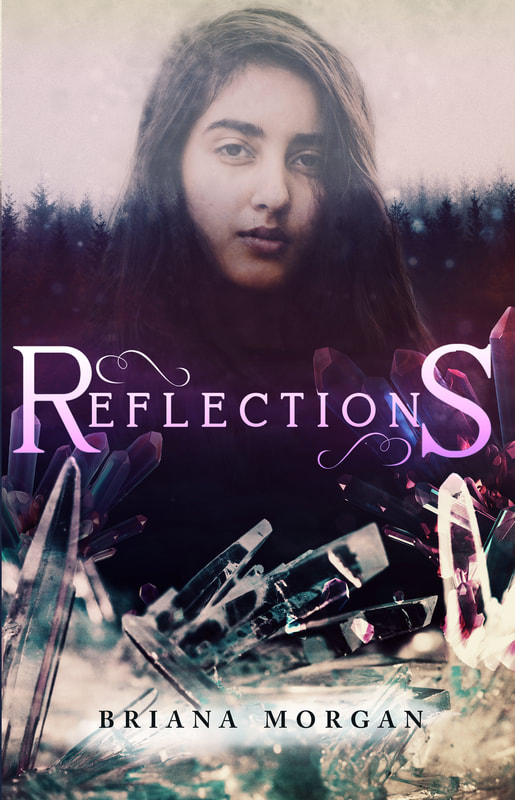
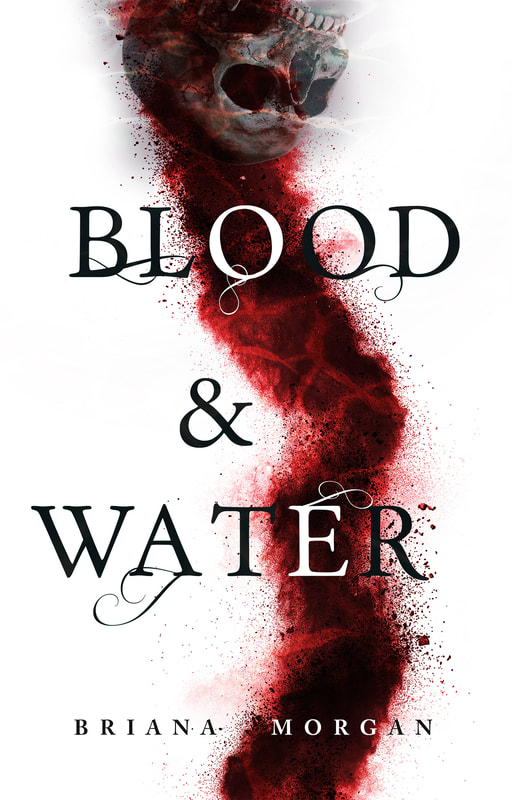
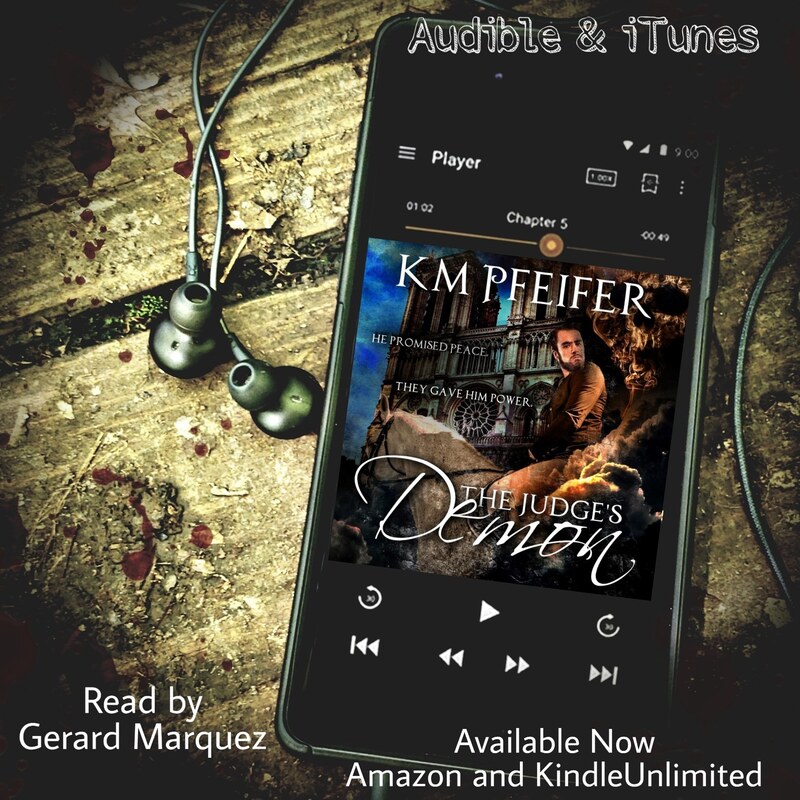
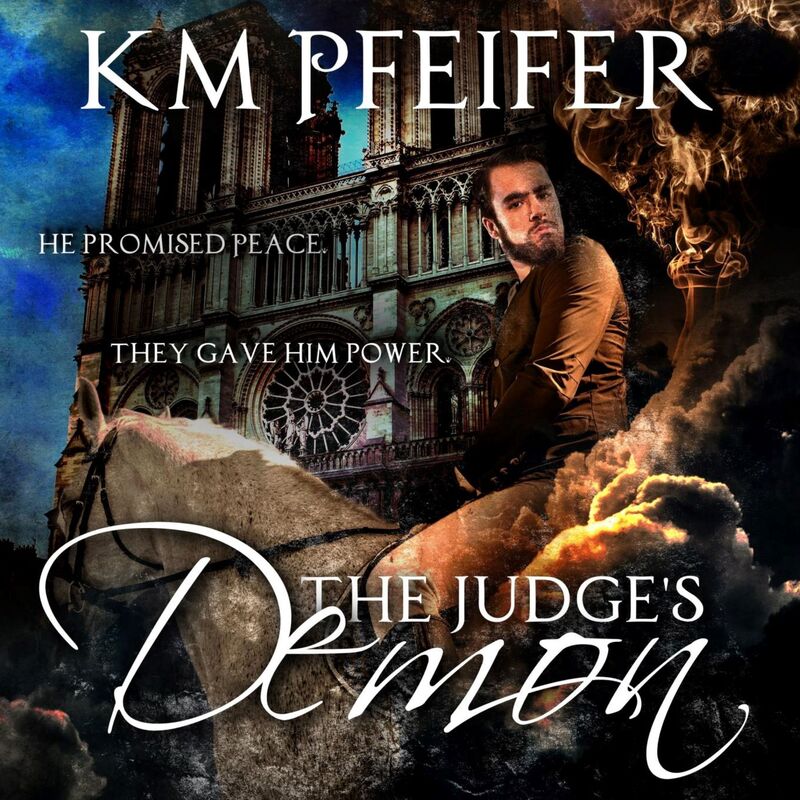
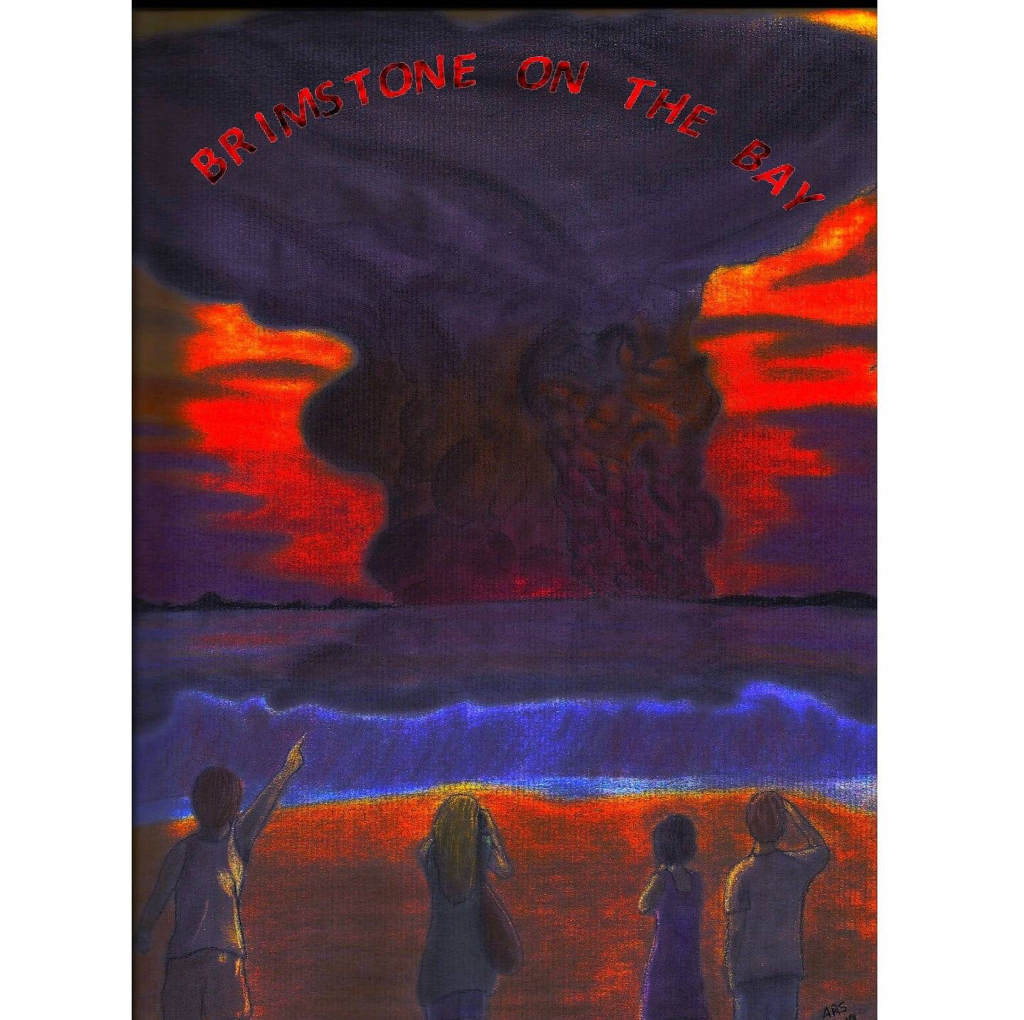
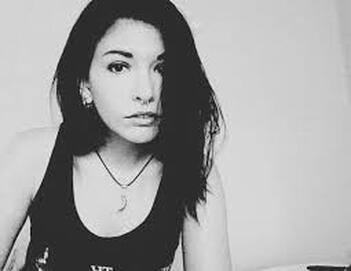
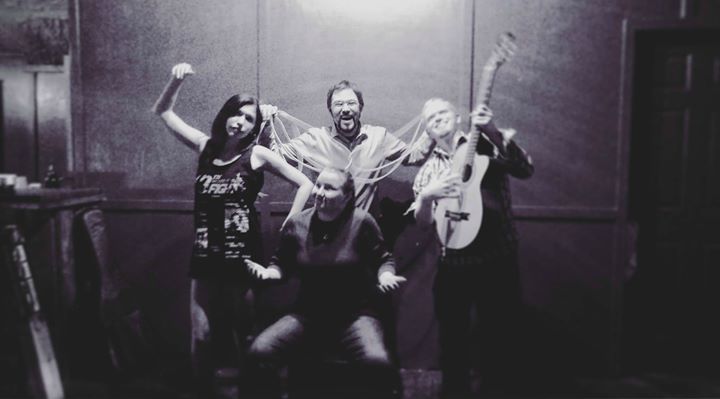
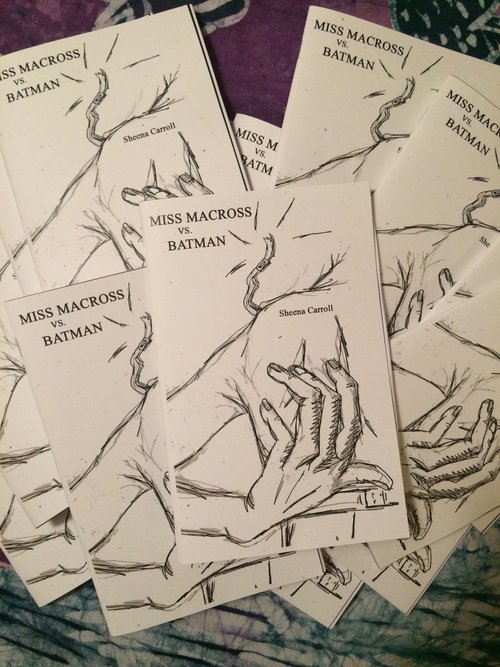
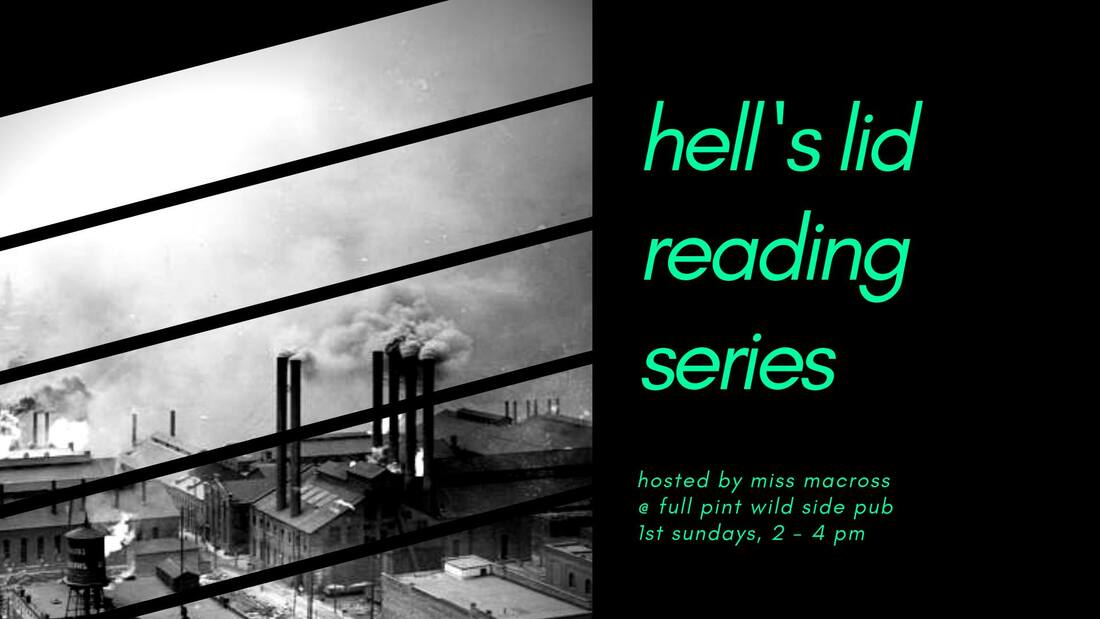
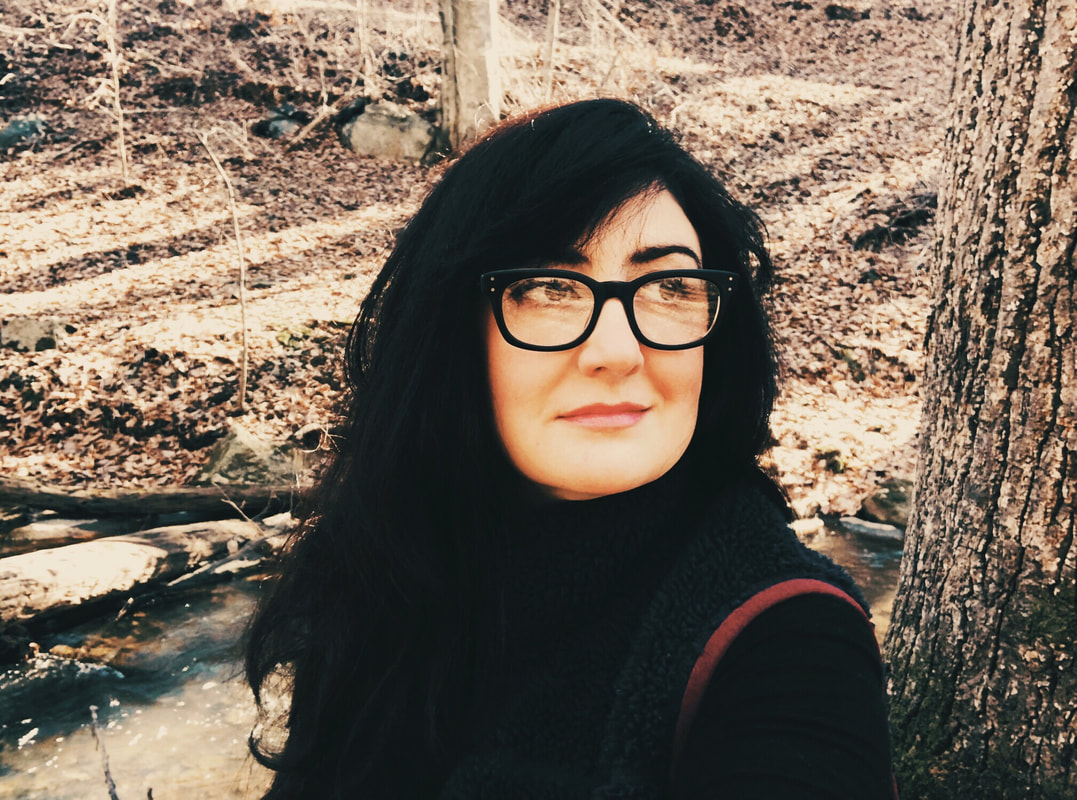
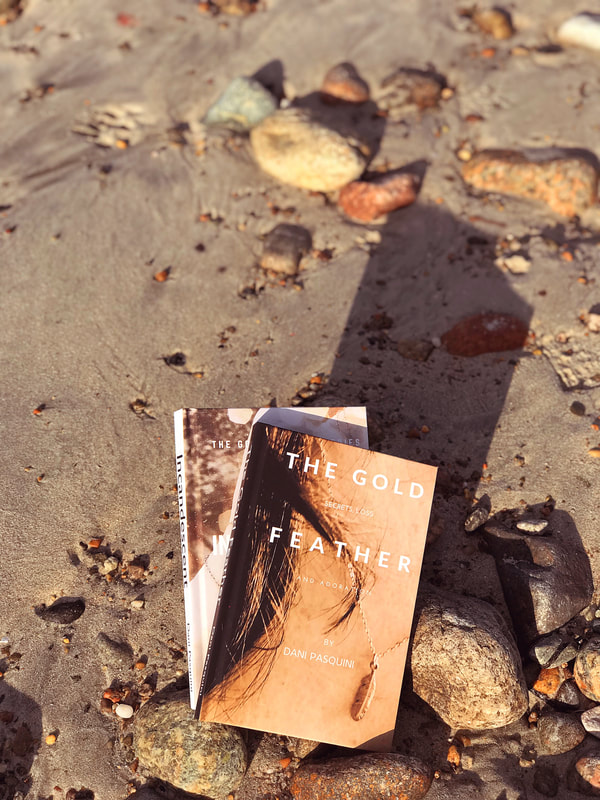
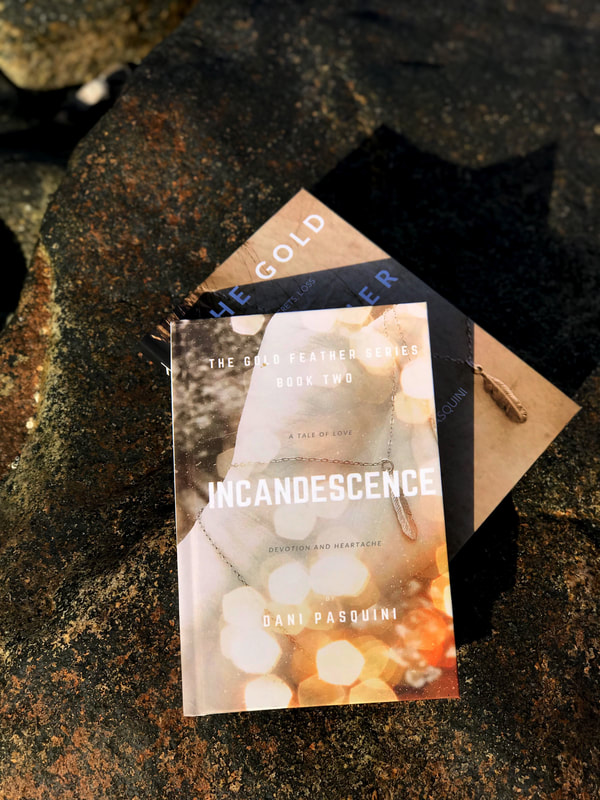
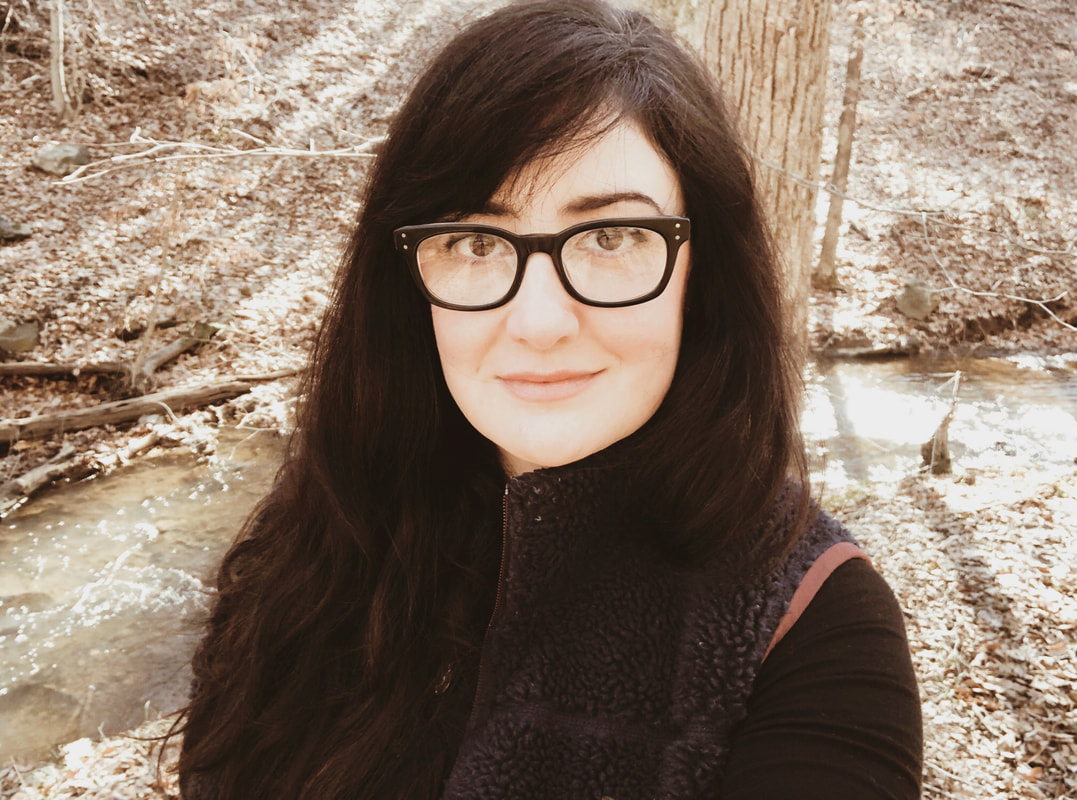
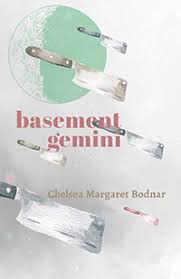
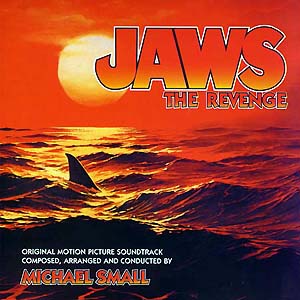
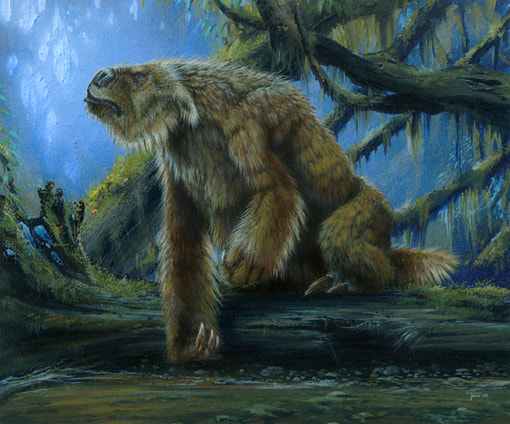
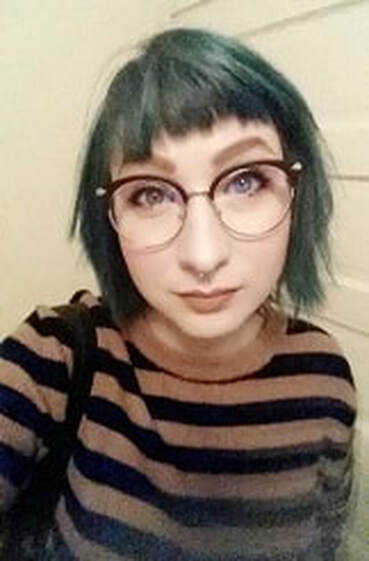

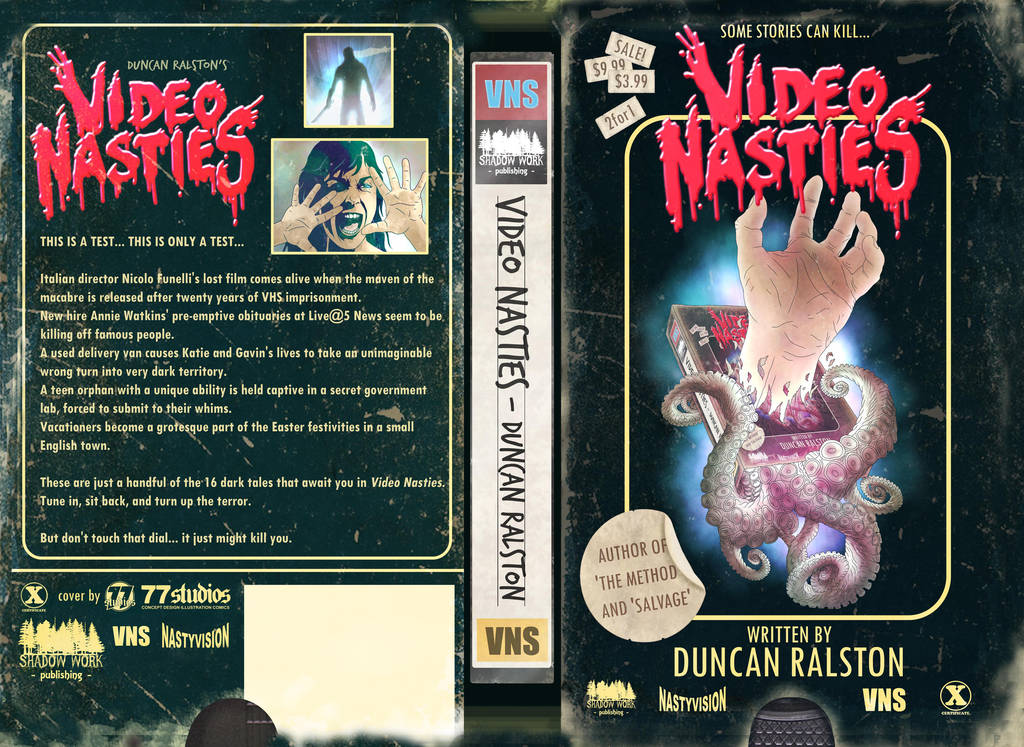
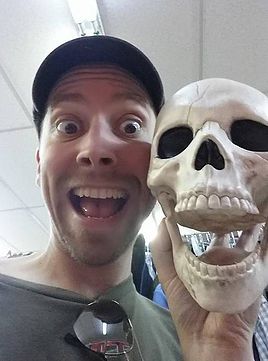
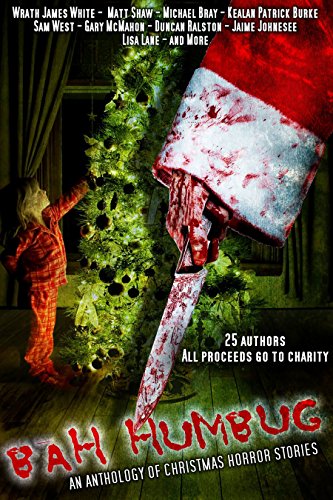
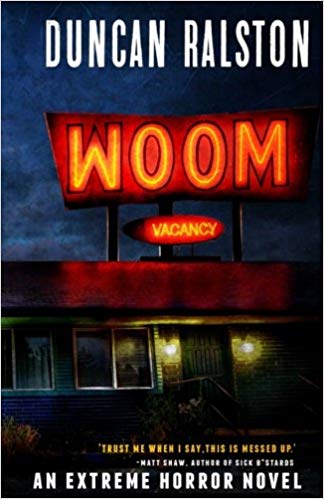
 RSS Feed
RSS Feed